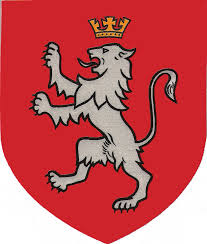
记忆方法
记忆“blazon”这个单词,可以将其分解为“b-l-a-z-o-n”。想象一个战士(warrior)穿着闪亮的盔甲(blazing armor),他在战场上(zone)自豪地展示(blaze)自己的徽章(blazon)。这样的图像可以帮助你记住这个单词的含义,即“纹章”或“夸耀性描述”。
以上内容由AI生成, 仅供参考和借鉴
英语词源
- blazon (n.)
- "coat of arms," late 13c., from Old French blason (12c.) "a shield, blazon," also "collar bone;" common Romanic (compare Spanish blason, Italian blasone, Portuguese brasao, Provençal blezo, the first two said to be French loan-words); of uncertain origin. OED doubts, on grounds of sense, the connection proposed by 19c. French etymologists to Germanic words related to English blaze (n.1).
- blazon (v.)
- 1560s, "to depict or paint (armorial bearings)," from blazon (n.) or else from French blasonner. Earlier as "to set forth decriptively" (1510s); especially "to vaunt or boast" (1530s), in this use probably from or influenced by blaze (v.2).
权威例句
- 1. Combed and wattled gules , and all the rest of the blazon.
- 红色的鸡冠和肉垂, 还有所有的家徽纹章.
- 2. I believe Shakespeare wants to blazon forth a notion of disciplinary well - ordered and morality.
- 我认为莎士比亚想宣扬一种有纪律有秩序有道德的社会主张.